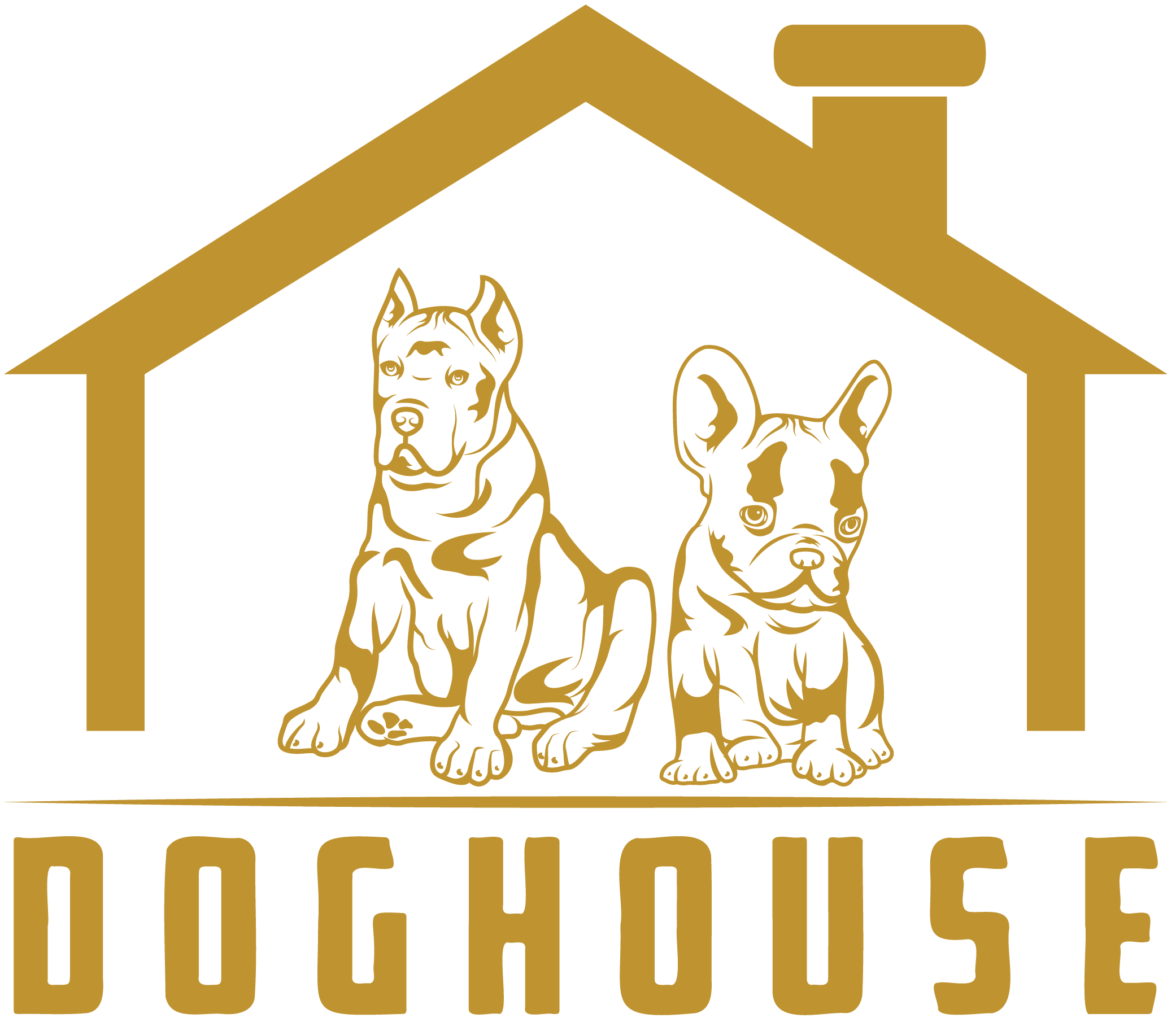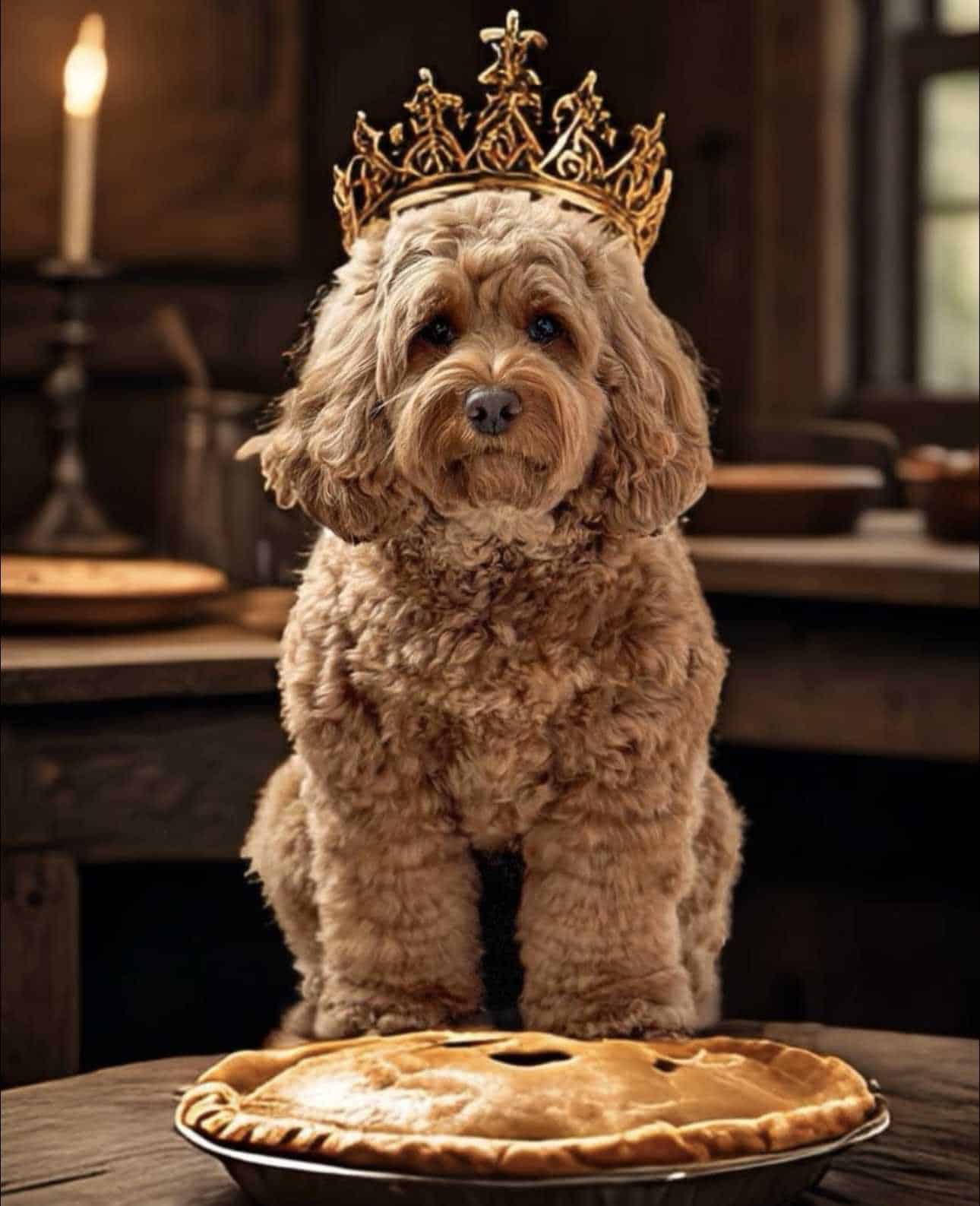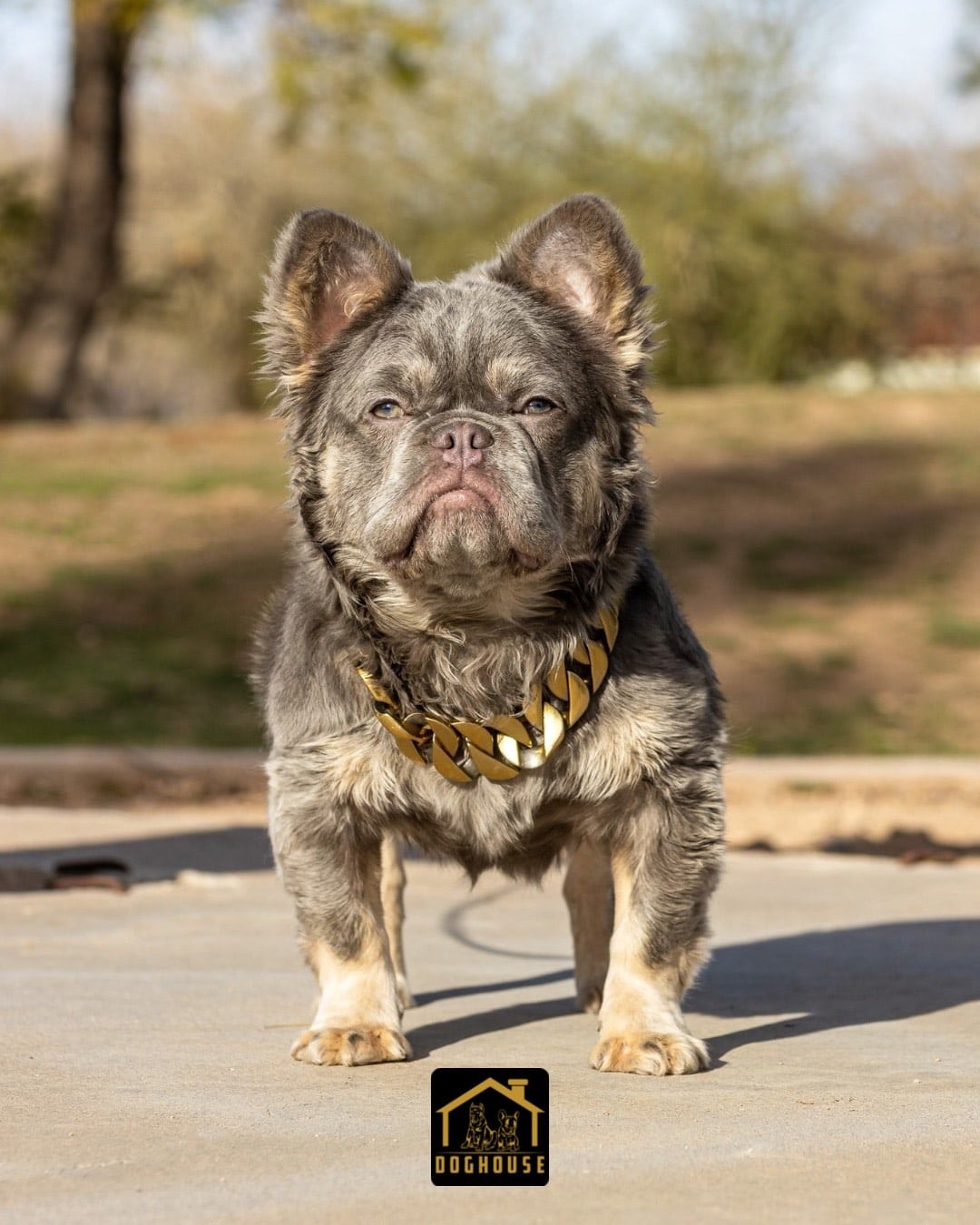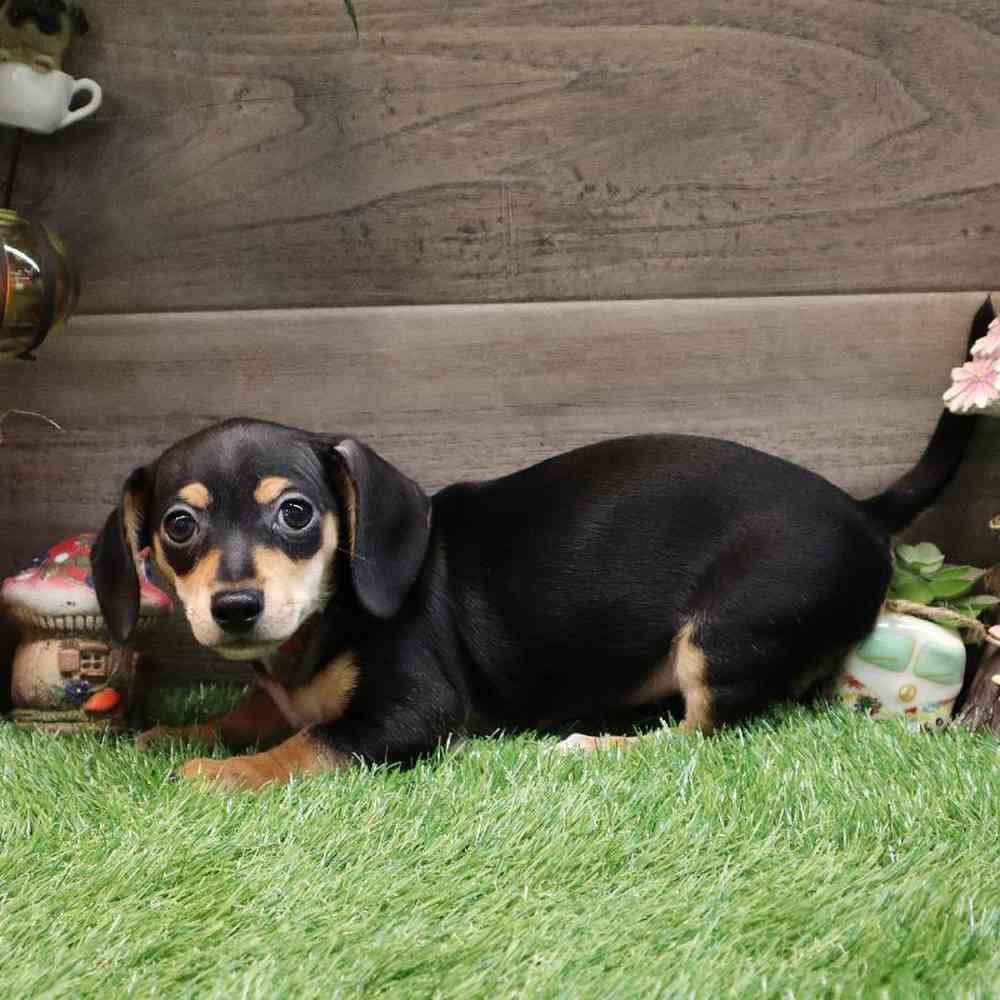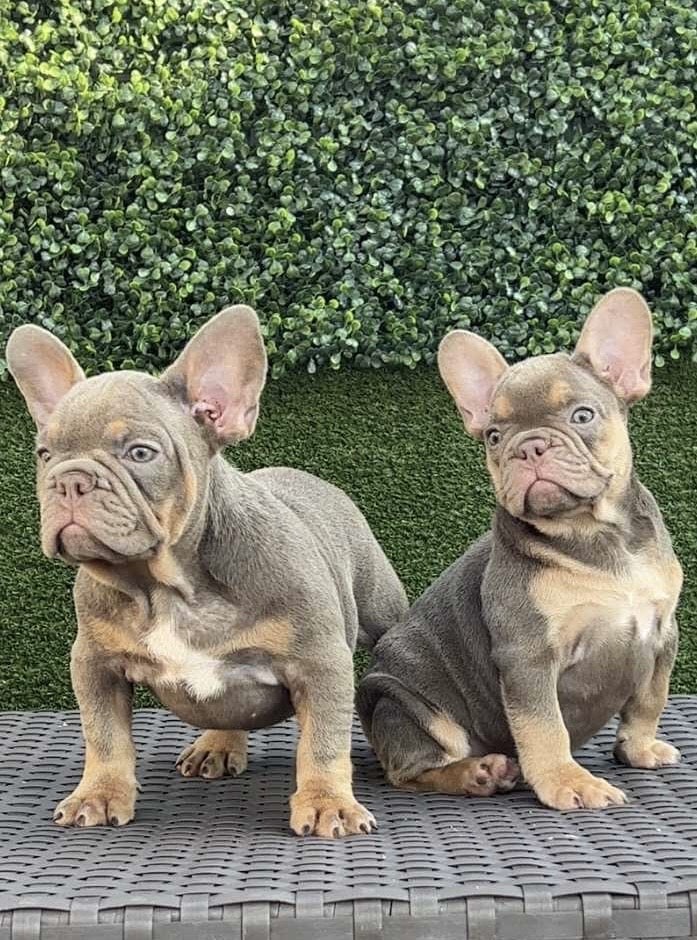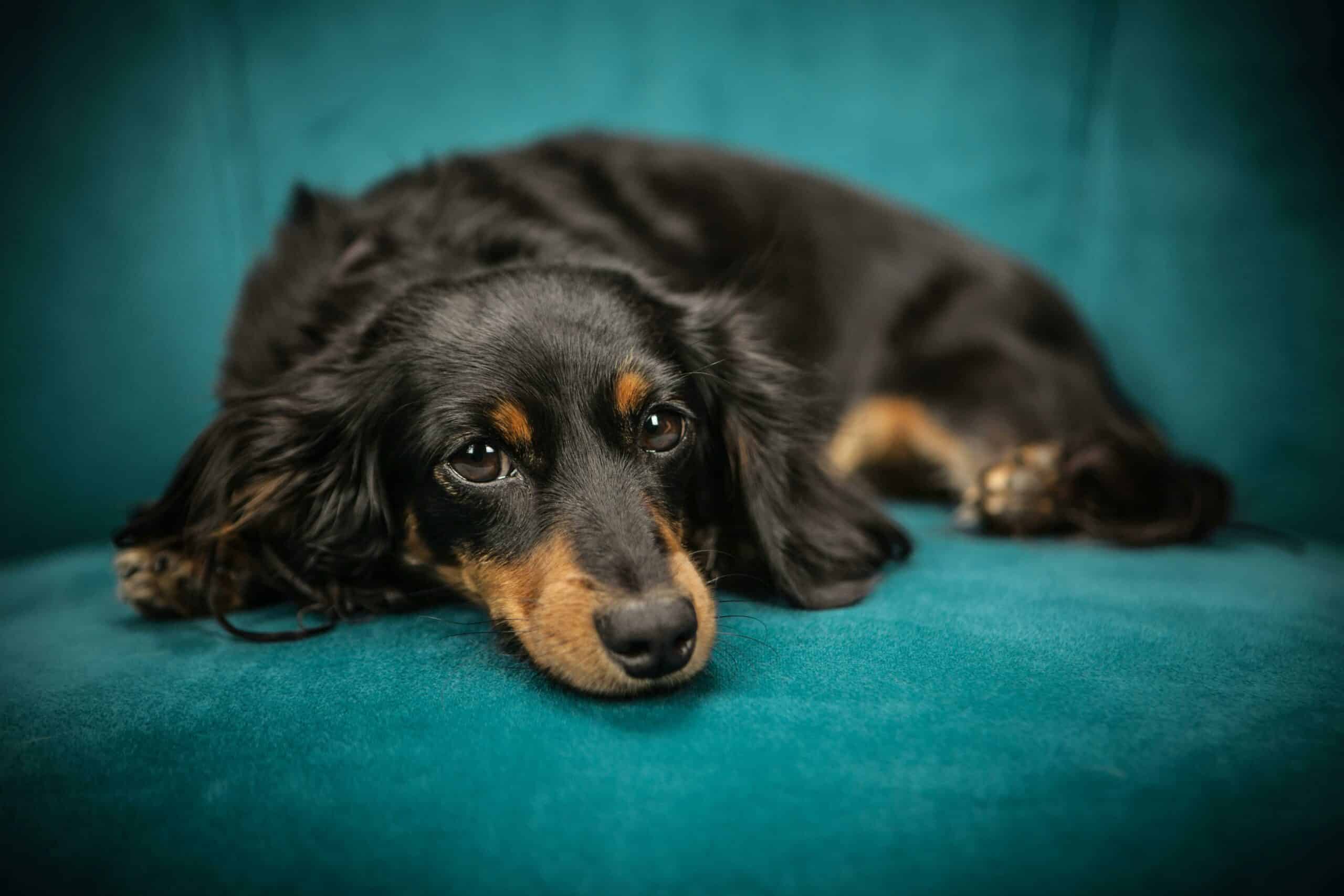The Goldendoodle, a delightful hybrid breed, results from crossing a Poodle with a Golden Retriever. Known for their intelligence, playful nature, and affectionate temperament, Goldendoodles are celebrated for their friendly and sociable disposition. They come in various sizes, including standard, miniature, and toy, accommodating different living situations and preferences. These dogs inherit the best traits from both parent breeds: the Poodle’s low-shedding coat and the Golden Retriever’s friendly and gentle demeanor, making them excellent family pets. Their versatility, coupled with their hypoallergenic qualities, has led to their popularity among dog enthusiasts and families alike. If you are interested in a Goldendoodle puppy from a reputable breeder then download our DogHouse puppy finder app!
History
The Goldendoodle, a designer dog breed, was first widely bred in the 1990s by crossing a Golden Retriever with a Poodle. This hybrid breed was inspired by the success of the Labradoodle, which was created to provide a hypoallergenic guide dog for individuals with allergies. The initial intent behind the Goldendoodle was similar, aiming to combine the intelligence and low-shedding coat of the Poodle with the friendly and tolerant nature of the Golden Retriever.
The breed’s popularity grew rapidly due to its versatile nature and family-friendly traits. Breeders appreciated the Goldendoodle for its potential as a guide dog, therapy dog, and family pet. The first known deliberate breeding of a Goldendoodle occurred in 1969, although it wasn’t until the 1990s that the breed became widely recognized and bred. Today, Goldendoodles are cherished for their affectionate and intelligent nature, making them a beloved choice among dog enthusiasts worldwide.
Goldendoodle Generations
Goldendoodles are classified into different generations based on their lineage and the percentage of Poodle and Golden Retriever genes they possess. The most common generational labels are F1, F1B, F2, and F2B, each with distinct characteristics and genetic compositions.
- F1 Goldendoodle (First Generation): This generation results from crossing a purebred Golden Retriever with a purebred Poodle. F1 Goldendoodles typically have a 50/50 mix of both breeds, combining traits like the Poodle’s intelligence and low-shedding coat with the Golden Retriever’s friendly and gentle nature.
- F1B Goldendoodle (First Generation Backcross): An F1B Goldendoodle is produced by breeding an F1 Goldendoodle with a purebred Poodle. This results in a dog with 75% Poodle and 25% Golden Retriever genes, often exhibiting more of the Poodle’s hypoallergenic coat, making them ideal for allergy sufferers.
- F2 Goldendoodle (Second Generation): F2 Goldendoodles are the offspring of two F1 Goldendoodles. These dogs typically have a 50/50 genetic split like the F1 generation but may show more variation in coat type and shedding tendencies.
- F2B Goldendoodle (Second Generation Backcross): This generation is a cross between an F1 Goldendoodle and an F1B Goldendoodle, resulting in a dog with approximately 62.5% Poodle and 37.5% Golden Retriever genes. F2B Goldendoodles are often sought for their balanced traits and moderately hypoallergenic coats.
Understanding these generational differences helps prospective owners select a Goldendoodle that best fits their lifestyle, particularly regarding coat type and allergy considerations.
Goldendoodle Temperament
Goldendoodles are celebrated for their friendly and affectionate temperament. These dogs are known for their intelligence, making them quick learners and easily trainable. Their playful nature and high energy levels make them excellent companions for active families, as they enjoy engaging in various activities and outdoor adventures.
Goldendoodles are also renowned for their gentle and sociable nature, often getting along well with children and other pets. They thrive on human interaction and are known for their strong desire to be close to their families, often displaying a cuddly and affectionate side. Their sociable and friendly demeanor makes them excellent therapy dogs, providing comfort and companionship to those in need.
Despite their playful and affectionate nature, Goldendoodles require regular mental and physical stimulation to prevent boredom, which can lead to destructive behaviors. Overall, their blend of intelligence, sociability, and affectionate temperament makes them a beloved choice for families and individuals alike.
Goldendoodle Price
The price of Goldendoodles can vary significantly based on factors such as generation, size, coat type, and breeder reputation. Here is a breakdown of the typical costs associated with different types of Goldendoodles:
- Standard Goldendoodle: These are the largest Goldendoodles, and their prices generally range from $1,500 to $3,000. The cost can be influenced by the breeder’s reputation, location, and the dog’s lineage.
- Miniature and Toy Goldendoodles: Smaller Goldendoodles, including Miniature and Toy sizes, often cost more due to their higher demand. Prices for these can range from $2,000 to $4,000.
- F1 Goldendoodles: As the first-generation crossbreed between a Golden Retriever and a Poodle, F1 Goldendoodles typically cost between $1,500 and $2,500. The exact price can depend on the breeder and the specific attributes of the puppy.
- F1B Goldendoodles: These dogs, being backcrosses with a Poodle, are often more desirable for their hypoallergenic qualities and thus can cost slightly more, generally between $2,000 and $3,500.
- F2 and Multigenerational Goldendoodles: The price for these generations varies widely but typically falls within the same range as F1 and F1B, around $1,500 to $3,500, depending on the breeder and the specific genetic traits desired.
Additional Cost
Owning a Goldendoodle involves various additional costs beyond the initial purchase price. These expenses ensure the health and well-being of your pet, covering regular and unexpected needs.
- Healthcare: Annual wellness exams and blood tests typically cost between $100 and $300. Additional tests and examinations can add another $300 to $400 annually. Routine vaccinations, flea and tick prevention, and heartworm medication are also necessary, averaging around $200 to $300 per year.
- Grooming: Goldendoodles require regular grooming to maintain their coat and prevent matting. Professional grooming sessions every 6-8 weeks can cost between $50 and $100 per visit, totaling around $400 to $800 annually.
- Food: High-quality dog food is essential for a Goldendoodle’s health. Monthly food costs can range from $50 to $100, depending on the brand and the dog’s size, leading to an annual expense of $600 to $1,200.
- Training and Supplies: Initial training classes typically cost between $100 and $300. Additionally, supplies such as collars, leashes, beds, and toys can add another $200 to $500 to your initial outlay.
- Boarding and Pet Sitting: If you travel, boarding your Goldendoodle in a kennel costs about $16+ per day, with additional fees for walks, playtime, and special care. Annual boarding expenses can vary widely based on frequency of travel.
Overall, prospective Goldendoodle owners should budget for these ongoing expenses to ensure their pet leads a healthy and happy life.
Goldendoodle Life Expectancy
Goldendoodles as a hybrid breed created by crossing Golden Retrievers and Poodles, typically have a lifespan ranging from 10 to 15 years. This longevity is inherited from their parent breeds, with Standard Poodles averaging 12 to 15 years and Golden Retrievers generally living around 10 to 12 years.
Several factors influence a Goldendoodle’s life expectancy, including genetics, size, diet, exercise, and overall care. Generally, smaller Goldendoodles tend to live longer than their larger counterparts. Proper nutrition, regular veterinary check-ups, and a healthy lifestyle can help maximize their lifespan.
To ensure a Goldendoodle lives a long and healthy life, owners should provide a balanced diet, regular exercise, mental stimulation, and routine health care. With the right care and attention, these affectionate and intelligent dogs can enjoy many happy years with their families.
Common Health Issues
Goldendoodles are generally healthy dogs but can be predisposed to certain health issues. These common health problems include:
- Hip and Elbow Dysplasia: These hereditary conditions are caused by abnormal joint development and can lead to arthritis and pain. Both hip and elbow dysplasia are common in larger breeds, including Goldendoodles.
- Eye Conditions: Goldendoodles may suffer from various eye problems, such as progressive retinal atrophy (PRA) and cataracts. These conditions can lead to vision loss if not managed properly.
- Allergies: This breed can be prone to skin allergies caused by environmental factors or food sensitivities. Symptoms often include itching, redness, and recurrent ear infections.
- Heart Conditions: Subvalvular aortic stenosis, a congenital heart defect, is sometimes seen in Goldendoodles. Regular veterinary check-ups are essential to monitor and manage heart health.
- Hypothyroidism: This condition results from an underactive thyroid gland and can cause symptoms like weight gain, lethargy, and skin issues. Hypothyroidism can be managed with medication once diagnosed.
- Addison’s Disease: This endocrine disorder affects the adrenal glands and can lead to symptoms like vomiting, weakness, and depression. It requires lifelong management with medication.
Regular veterinary care, a balanced diet, and proper exercise can help mitigate these health risks and ensure a healthier life for your Goldendoodle.
Goldendoodles Size
Goldendoodles come in a variety of sizes to suit different living situations and preferences. The main sizes of Goldendoodles are Toy, Miniature, Medium, and Standard.
- Toy Goldendoodle: The smallest variety, Toy Goldendoodles, typically stand about 10 to 14 inches tall at the shoulder and weigh between 10 and 25 pounds. They are ideal for apartment living or households with limited space.
- Miniature Goldendoodle: Miniature Goldendoodles are slightly larger, with a height over 14 inches but not exceeding 17 inches. They usually weigh between 26 and 35 pounds. This size is popular for those looking for a compact yet energetic companion.
- Medium Goldendoodle: Medium Goldendoodles stand between 17 to 21 inches tall and weigh around 36 to 50 pounds. They offer a balanced size, suitable for both small and larger homes, providing a mix of manageability and robustness.
- Standard Goldendoodle: The largest variety, Standard Goldendoodles, stand over 21 inches tall at the shoulder and weigh 51 pounds or more. They are well-suited for active families and those with ample space for the dog to play and exercise.
The size of a Goldendoodle largely depends on the size of the Poodle parent, which can be Toy, Miniature, or Standard, influencing the overall size of the offspring. This variety in sizes makes Goldendoodles a versatile breed, accommodating various lifestyles and household environments.
Goldendoodles Puppy Weight Chart
Here are the tables showing the puppy weight by month for each type of Goldendoodle, separated by male and female:
Toy Goldendoodle Weight Chart
| Month | Male Weight (lbs) | Female Weight (lbs) |
|---|---|---|
| 1 | 2 | 2 |
| 2 | 3 | 3 |
| 3 | 4 | 4 |
| 4 | 5 | 5 |
| 5 | 6 | 6 |
| 6 | 7 | 7 |
| 7 | 8 | 8 |
| 8 | 9 | 9 |
| 9 | 10 | 10 |
| 10 | 11 | 11 |
| 11 | 12 | 12 |
| 12 | 13 | 13 |
Miniature Goldendoodle Weight Chart
| Month | Male Weight (lbs) | Female Weight (lbs) |
|---|---|---|
| 1 | 4 | 3 |
| 2 | 6 | 5 |
| 3 | 8 | 7 |
| 4 | 10 | 9 |
| 5 | 12 | 11 |
| 6 | 14 | 13 |
| 7 | 16 | 15 |
| 8 | 18 | 17 |
| 9 | 20 | 19 |
| 10 | 22 | 21 |
| 11 | 24 | 23 |
| 12 | 26 | 25 |
Medium Goldendoodle Weight Chart
| Month | Male Weight (lbs) | Female Weight (lbs) |
|---|---|---|
| 1 | 6 | 5 |
| 2 | 8 | 7 |
| 3 | 11 | 10 |
| 4 | 14 | 13 |
| 5 | 17 | 16 |
| 6 | 20 | 19 |
| 7 | 23 | 22 |
| 8 | 26 | 25 |
| 9 | 29 | 28 |
| 10 | 32 | 31 |
| 11 | 35 | 34 |
| 12 | 38 | 37 |
Standard Goldendoodle Weight Chart
| Month | Male Weight (lbs) | Female Weight (lbs) |
|---|---|---|
| 1 | 10 | 9 |
| 2 | 15 | 14 |
| 3 | 20 | 19 |
| 4 | 25 | 24 |
| 5 | 30 | 29 |
| 6 | 35 | 34 |
| 7 | 40 | 39 |
| 8 | 45 | 44 |
| 9 | 50 | 49 |
| 10 | 55 | 54 |
| 11 | 60 | 59 |
| 12 | 65 | 64 |
Goldendoodle Diet
The best diet for a Goldendoodle is one that provides balanced nutrition tailored to their specific size, age, activity level, and any health concerns they may have. Here are key components to consider when selecting the optimal diet for a Goldendoodle:
1. High-Quality Protein
Goldendoodles need high-quality protein to support their active lifestyle and maintain muscle mass. Look for dog foods with real meat sources such as chicken, beef, lamb, or fish listed as the first ingredient.
2. Healthy Fats
Healthy fats are essential for energy and maintaining a healthy coat and skin. Omega-3 and omega-6 fatty acids, commonly found in fish oil and flaxseed, are particularly beneficial.
3. Carbohydrates and Fiber
Complex carbohydrates from sources like brown rice, sweet potatoes, and oats provide sustained energy. Fiber aids in digestion and can help prevent gastrointestinal issues.
4. Essential Vitamins and Minerals
A balanced dog food should include essential vitamins and minerals, such as vitamins A, C, and E, and minerals like calcium and phosphorus, to support overall health and development.
5. Avoid Fillers and Artificial Additives
Avoid dog foods with fillers like corn, wheat, and soy, as well as artificial colors, flavors, and preservatives, which can cause allergies and other health issues.
Specific Diets
- Puppy Diet: Puppies need a diet rich in protein and fat to support their rapid growth and development. Puppy-specific formulas are recommended until they reach adulthood.
- Adult Diet: Adult Goldendoodles need a balanced diet that maintains their energy levels and overall health. A mix of dry kibble and wet food can be beneficial.
- Senior Diet: Senior Goldendoodles may benefit from a diet lower in calories but higher in fiber to maintain a healthy weight and support digestion. Supplements like glucosamine can help with joint health.
Feeding Guidelines
- Portion Control: Follow the feeding guidelines provided on the dog food packaging based on your Goldendoodle’s weight and age.
- Regular Meals: Split the daily food allowance into two or three meals to maintain energy levels throughout the day and prevent bloating.
Consultation with a Veterinarian
Always consult with your veterinarian to tailor a diet plan specific to your Goldendoodle’s needs, especially if they have health issues or dietary sensitivities.
Goldendoodle Colors
Goldendoodles exhibit a wide variety of coat colors. This diversity in appearance is one of the breed’s charming characteristics. Here are the main coat colors found in Goldendoodles:
- Apricot: A soft, creamy red color that is warmer than the lighter cream shades. This is one of the most popular and sought-after colors for Goldendoodles.
- Red: Goldendoodles can range from light golden-red to a deep, dark reddish-brown. This color is particularly striking and can resemble the rich hues of an Irish Setter.
- Cream: Ultra Cream and Champagne are lighter variations that give Goldendoodles a soft, pale appearance. These colors are similar to the lighter shades of Golden Retrievers.
- Black: Though less common, black Goldendoodles are striking. It’s worth noting that many black puppies may lighten to silver or blue as they age due to the genetic trait known as “silvering”.
- Chocolate: This color can vary from a deep, rich brown to lighter chocolate shades. It provides a warm and inviting look to the Goldendoodle’s coat.
- Parti: Parti Goldendoodles have a coat that is at least 50% white with patches of another color. This pattern is quite unique and adds to the breed’s appeal.
- Phantom: Phantom Goldendoodles have a primary color with secondary markings, similar to the pattern seen in Dobermans. This color pattern is rare and highly distinctive.
- Gray/Silver: Some Goldendoodles may have a gray or silver coat, often emerging as they age from a darker puppy coat.
- Golden: The classic golden color is reminiscent of their Golden Retriever parent. This color can range from a light golden hue to a darker, more vibrant gold.
The variety of coat colors in Goldendoodles adds to their unique appeal, making each dog truly one-of-a-kind.
Goldendoodle Image
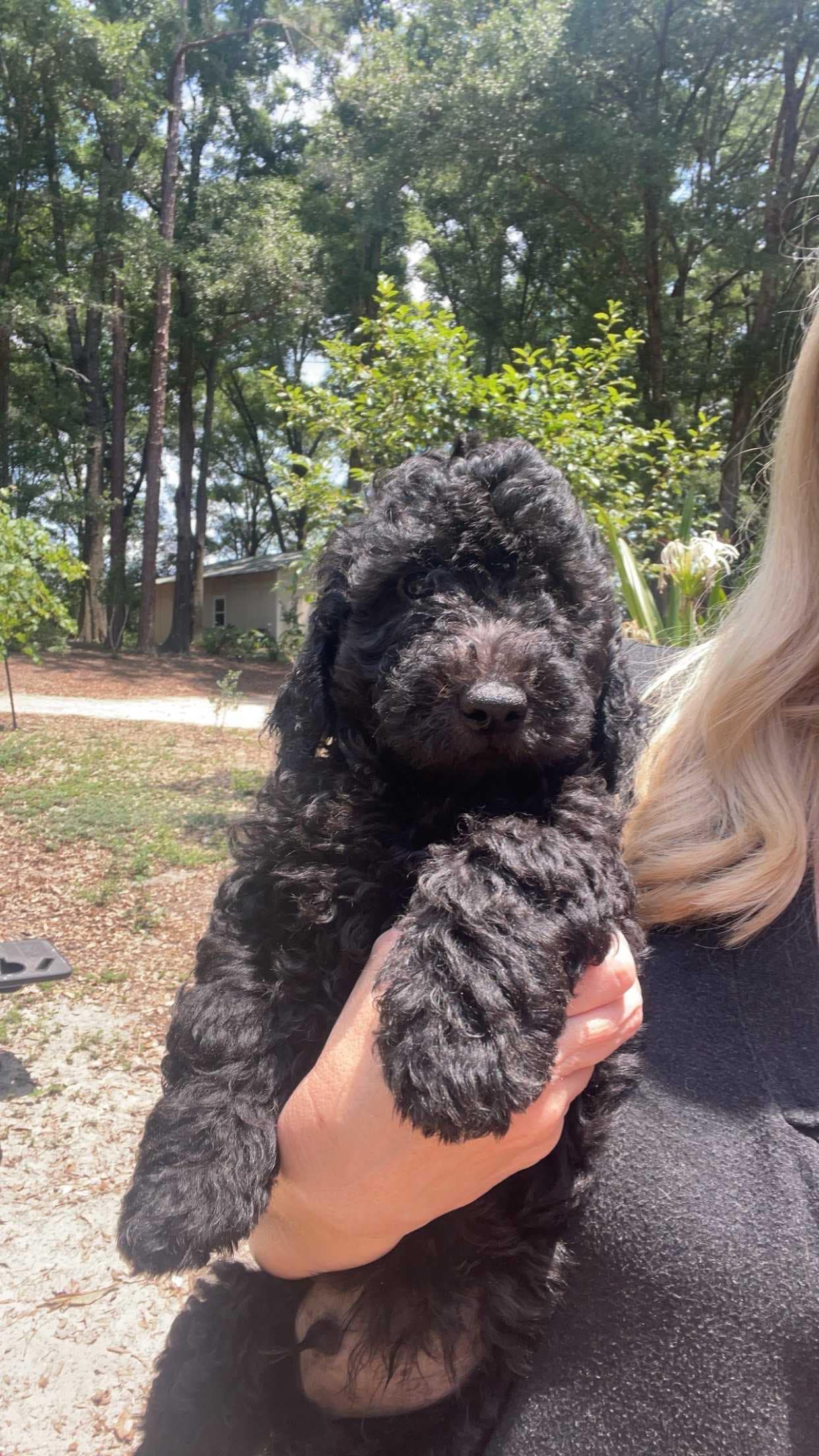
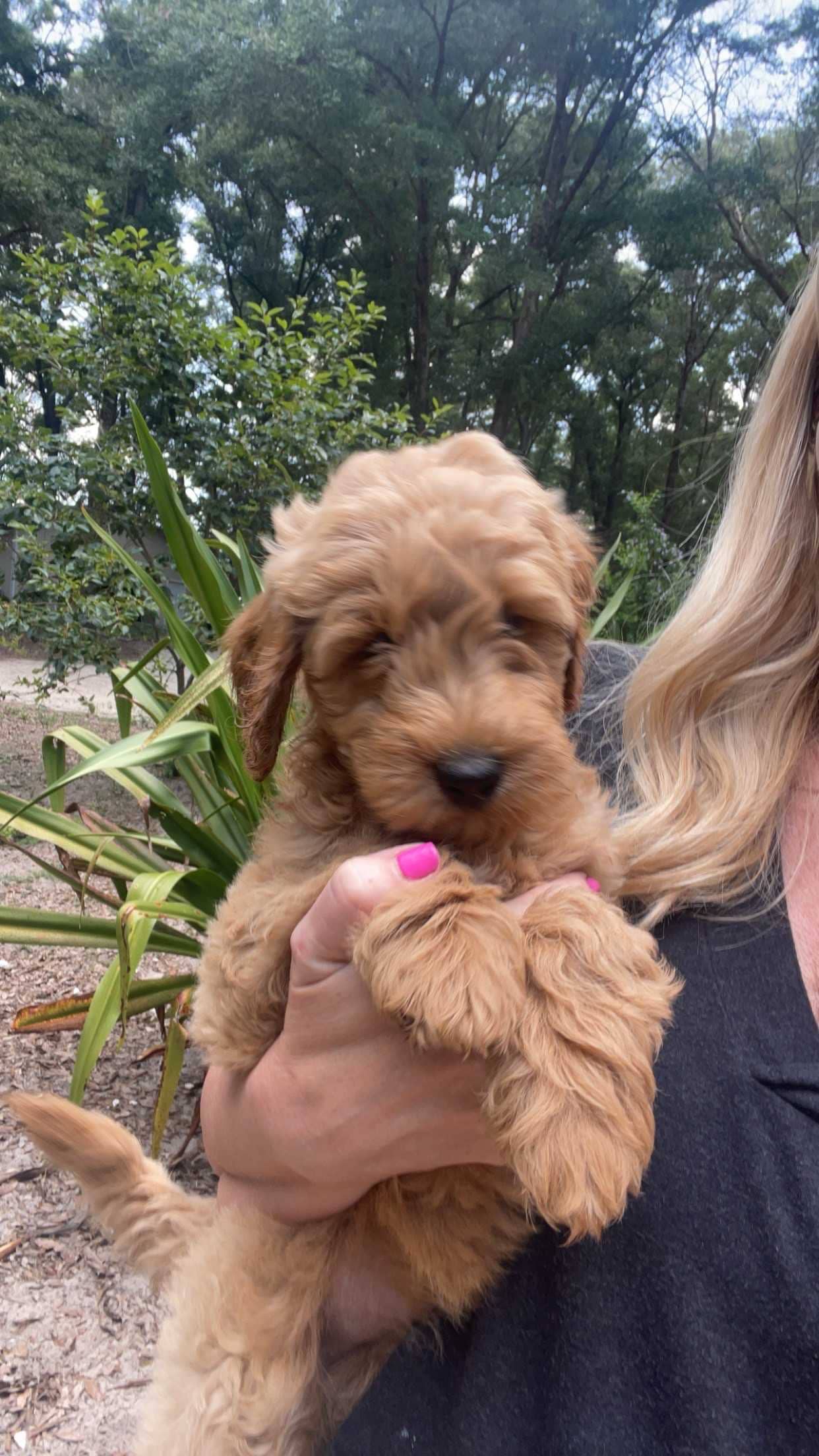
Goldendoodle Grooming Tips
Grooming is an essential part of caring for a Goldendoodle due to their unique coat, which is often curly or wavy and can mat easily. Here are some tips to establish a healthy grooming routine for your Goldendoodle:
1. Regular Brushing
- Frequency: Brush your Goldendoodle at least 3-4 times a week to prevent mats and tangles.
- Tools: Use a slicker brush and a metal comb. The slicker brush helps to remove loose hair and tangles, while the comb ensures no hidden mats are left behind.
2. Bathing
- Frequency: Bathe your Goldendoodle every 4-6 weeks. Over-bathing can strip the natural oils from their coat, leading to dryness.
- Products: Use a mild dog shampoo and conditioner. Avoid human shampoos as they can be too harsh for a dog’s skin.
3. Trimming and Haircuts
- Frequency: Goldendoodles should have a professional grooming session every 6-8 weeks.
- Styles: Popular styles include the Teddy Bear cut, the Lamb cut, and the Kennel cut. Discuss with your groomer to choose the best style for your dog.
4. Nail Clipping
- Frequency: Trim your dog’s nails every 3-4 weeks. If you hear clicking on the floor, it’s time for a trim.
- Tools: Use dog nail clippers or a nail grinder. Be cautious to avoid cutting into the quick, which can cause pain and bleeding.
5. Ear Cleaning
- Frequency: Clean your Goldendoodle’s ears once a week to prevent infections.
- Method: Use a vet-recommended ear cleaner. Apply the solution to a cotton ball and gently wipe the inside of the ear flap. Never insert anything into the ear canal.
6. Dental Care
- Frequency: Brush your dog’s teeth at least 2-3 times a week.
- Tools: Use dog-specific toothpaste and a toothbrush. Dental chews and toys can also help maintain oral health.
7. Eye Care
- Method: Gently wipe the corners of your dog’s eyes daily with a damp cloth to remove tear stains and debris.
8. Coat Care
- Conditioning: Use a leave-in conditioner or detangling spray to keep the coat soft and manageable.
- De-shedding: Though Goldendoodles shed minimally, using a de-shedding tool during brushing can help manage loose hair.
9. Professional Grooming
- Visits: Regular visits to a professional groomer can ensure your Goldendoodle’s coat stays in optimal condition and allows for expert handling of any grooming issues.
Tips for a Positive Grooming Experience
- Start Early: Begin grooming when your Goldendoodle is a puppy to get them accustomed to the process.
- Positive Reinforcement: Use treats and praise to make grooming a positive experience.
- Stay Calm: Keep the environment calm and relaxed to help your dog feel at ease.
By following these tips, you can keep your Goldendoodle’s coat healthy and beautiful while also promoting overall well-being.
Conclusion
The Goldendoodle, a cross between a Golden Retriever and a Poodle, is renowned for its friendly, playful, and intelligent nature. This hybrid breed combines the best traits of both parent breeds, resulting in a dog that is highly sociable, great with children, and generally hypoallergenic due to its Poodle heritage. Goldendoodles are celebrated for their patience and gentle disposition, making them ideal family pets and excellent companions for those with allergies.
In addition to their wonderful temperaments, Goldendoodles are also noted for their versatility and adaptability. They thrive in various living situations, from apartments to larger homes with yards, provided they receive sufficient exercise and mental stimulation. Their coat can come in a variety of colors and textures, adding to their unique appeal.
Overall, the Goldendoodle’s combination of intelligence, friendliness, and hypoallergenic qualities has made it a popular and beloved choice among dog owners worldwide.

